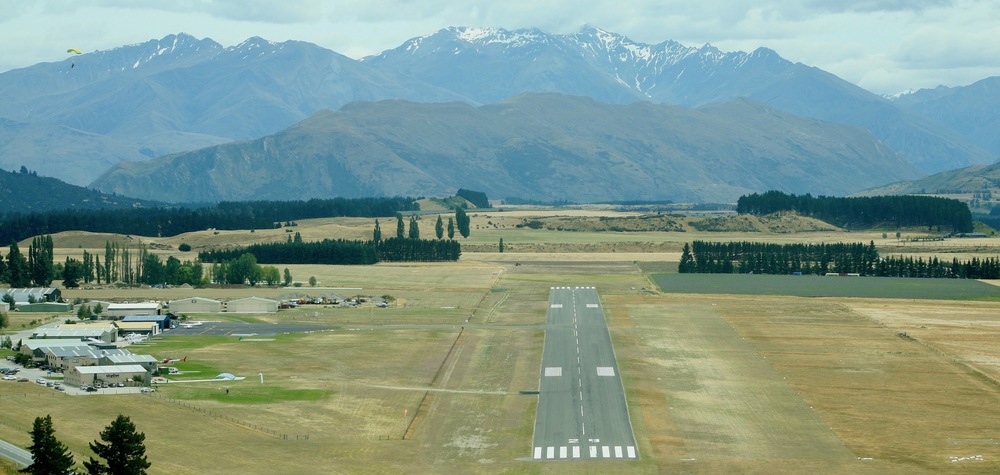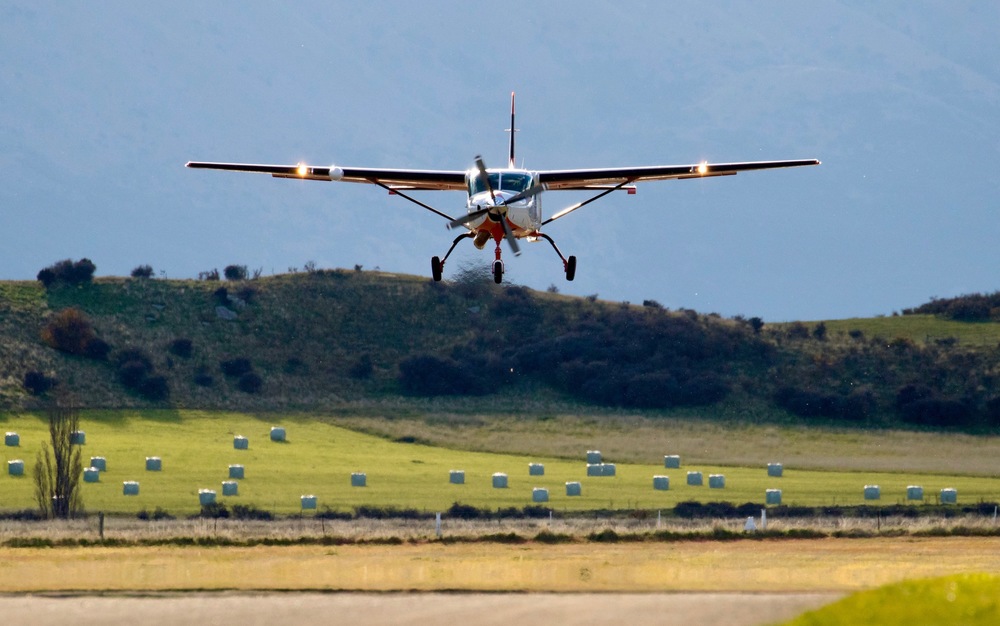Wānaka airport: costs and management
Diana Cocks
20 October 2021, 5:06 PM
 Over $14M was repaid to QAC when Wānaka airport’s lease was overturned. PHOTO: Esther Small
Over $14M was repaid to QAC when Wānaka airport’s lease was overturned. PHOTO: Esther SmallWānaka’s airport is back in the hands of the Queenstown Lakes District Council (QLDC) and ratepayers but so are its ongoing operational and maintenance costs as well as any future investment.
When the High Court decision earlier this year overturned the Queenstown Airport Corporation (QAC) lease of the Wānaka Airport, the ratepayers were not only required to repay QAC $14.1M in fixed assets and prepaid lease costs, but also to pick up the tab for current operations under the new management agreement with QAC as well as necessary maintenance costs.
Airport costs and investment
This year’s annual budget (to 30 June 2022) for Wānaka airport indicates total operational expenses of just under $1.1M which is offset by almost the same amount earned in revenue from lease rentals and landing fees. However, the cost of the council’s agreement with QAC for Wānaka Airport’s day-to-day management is unknown.
In addition to operational costs, $1M is budgeted in this year’s annual plan for ongoing maintenance and upgrades to Wānaka’s runway.

Council is considering a report which recommends improvements to the airport’s runway. PHOTO: Supplied
A formal runway assessment last year revealed regular wear and tear (surface cracking, wheel ruts, loose stones at runway edges, etc) and the council is reviewing recommendations to patch the asphalt and resurface the runway, QLDC media advisor Sam White said.
Further investment is also budgeted for the airport apron, taxiway and carpark this financial year.
The airport’s wastewater and drinking water services are also under council review.
Currently the airport’s wastewater uses septic tanks but the plan was to upgrade the system and pipe directly into Project Pure. Similarly, its potable water supply currently relies on tank water and there is a proposal to switch to Wānaka’s main water system.
Sam said the council is continuing to discuss both proposals with QAC.
Management agreement
Prior to the QAC lease of the airport being implemented in 2018, the council held a Management Services Agreement (MSA) with QAC to oversee the day-to-day running of the airport.
When the lease was overturned in April this year, the council arranged an interim agreement with QAC for it to resume its previous management role.
“It is critical to ensure the airport continues to operate safely,” mayor Jim Boult said. “There’s a lot of work to do right now to just keep the airport running safely for the 30 plus operators and the 300 people who work at or in support of Wānaka Airport.”

A strategic review of the airport’s long term future is yet to occur. PHOTO: Supplied
Since then, council staff have been working on a new formal MSA with QAC to replace the interim agreement and take the airport through to around 2026/27. This new agreement is expected to be adopted by council by January/February next year, Sam said.
“This will set out how Wānaka Airport will be managed over the medium term,” he said.
“The MSA is about day-to-day operations and management of the airport site but does not set any strategic direction for the future of Wānaka Airport.”
As a result, there won’t be a formal public consultation on the draft MSA but it will go to the Wānaka Community Board for recommendation to council next month (November), and then to the full council for agreement, Sam said.
Airport masterplan in limbo
Before the lease arrangement was overturned, QAC was working on Wānaka Airport’s masterplan to guide and provide a future pathway. In 2017/18 QAC had purchased around 150ha of land adjacent to the airport to cater for its future growth.
Sam declined to respond to questions concerning what will happen to this land, saying instead the priority was the formal MSA. Council currently has no work underway or planned for a long term masterplan, he said.
In a statement earlier this year, the mayor acknowledged that talk of potential future development of Wānaka Airport had divided some members of the Upper Clutha community.
“Any strategic review of the long-term future of Wānaka Airport will involve a bigger conversation with the community but this is yet to be defined,” Sam said.





